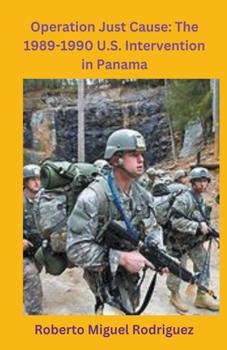Operation Just Cause: The 1989-1990 U.S. Intervention in Panama
"Operation Just Cause: The 1989-1990 U.S. Military Intervention in Panama" offers a comprehensive and detailed examination of one of the late 20th century's critical military interventions. This book meticulously explores the strategic, political, and operational dimensions of the United States' decision to intervene in Panama, aiming to depose General Manuel Noriega and establish a democratic government.
The narrative begins by setting the historical and political context of U.S.-Panama relations, detailing the events that led to escalating tensions and the eventual decision to launch a military operation. The book provides a thorough analysis of the geopolitical considerations, including the role of the Panama Canal and the broader implications for U.S. policy in Latin America.
Each chapter delves into various aspects of Operation Just Cause. The book examines the planning and execution of the military campaign, from the deployment of troops to the use of advanced technology and tactics. The author analyzes the operational challenges encountered by U.S. forces, including urban warfare in densely populated areas like Panama City and the logistical complexities of a rapid deployment.
A significant portion of the book is dedicated to examining the impact of the intervention. This includes the immediate military and political outcomes, such as the capture and extradition of Noriega and the restoration of a civilian government in Panama. The author also evaluates the long-term effects on Panama's political landscape, U.S. military doctrine, and international law.
"Operation Just Cause" also addresses the humanitarian and ethical considerations of the intervention, discussing the impact on the Panamanian civilian population, and the international response to the U.S. military action.
This book is an essential resource for students and scholars of military history, international relations, and Latin American studies. It offers a nuanced and comprehensive look at a pivotal event that shaped U.S. military and foreign policy at the end of the Cold War.
Related Subjects
History




